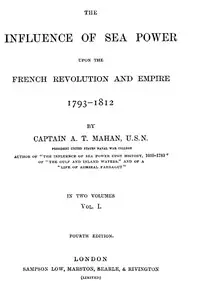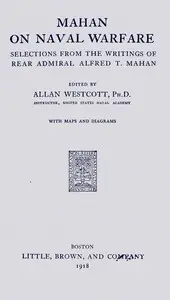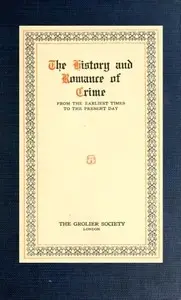"The Major Operations of the Navies in the War of American Independence" by A.T. Mahan is a historical account written in the early 20th century. This work delves into the naval strategies and battles that played critical roles during the American Revolutionary War. Its primary focus is on how control of naval forces influenced the outcome of critical events in the conflict, drawing connections between maritime power and broader military strategy. At the start of the book, the author establishes the significant impact of naval warfare on the American fight for independence. Mahan introduces the concept that the key to American success lay in its naval engagements, particularly through actions led by figures like Benedict Arnold. The opening chapters outline the early naval campaigns, such as Arnold's actions on Lake Champlain, illustrating how initial successes bolstered American morale and delayed British advances, ultimately setting the stage for alliances with France and Spain that would expand the conflict into a global war. The text reflects Mahan's exploration of military theory, linking past naval operations to future implications for American naval policy. (This is an automatically generated summary.)

The Major Operations of the Navies in the War of American Independence
By A. T. (Alfred Thayer) Mahan
"The Major Operations of the Navies in the War of American Independence" by A.T. Mahan is a historical account written in the early 20th century. This...
Alfred Thayer Mahan was a United States naval officer and historian, whom John Keegan called "the most important American strategist of the nineteenth century." His 1890 book The Influence of Sea Power Upon History, 1660–1783 won immediate recognition, especially in Europe, and with the publication of its 1892 successor, The Influence of Sea Power Upon the French Revolution and Empire, 1793–1812, he affirmed his status as a globally-known and regarded military strategist, historian, and theorist. Mahan's works encouraged the development of large capital ships — eventually leading to dreadnought battleships — as he was an advocate of the 'decisive battle' and of naval blockades. Critics, however, charged him with failing to adequately explain the rise of largely land-based empires, such as the German or Ottoman Empires, though Mahan did accurately predict both empires' defeats in World War I. Mahan directly influenced the dominant interwar period and World War II-era Japanese naval doctrine of the "decisive battle doctrine" , and he became a "household name" in Germany. He also promoted American control over Hawaii though he was "lukewarm" in regards to American imperialism in general. Four U.S. Navy ships have borne his name, as well as various buildings and roads; and his works are still read, discussed, and debated in military, historical, and scholarly circles.


















